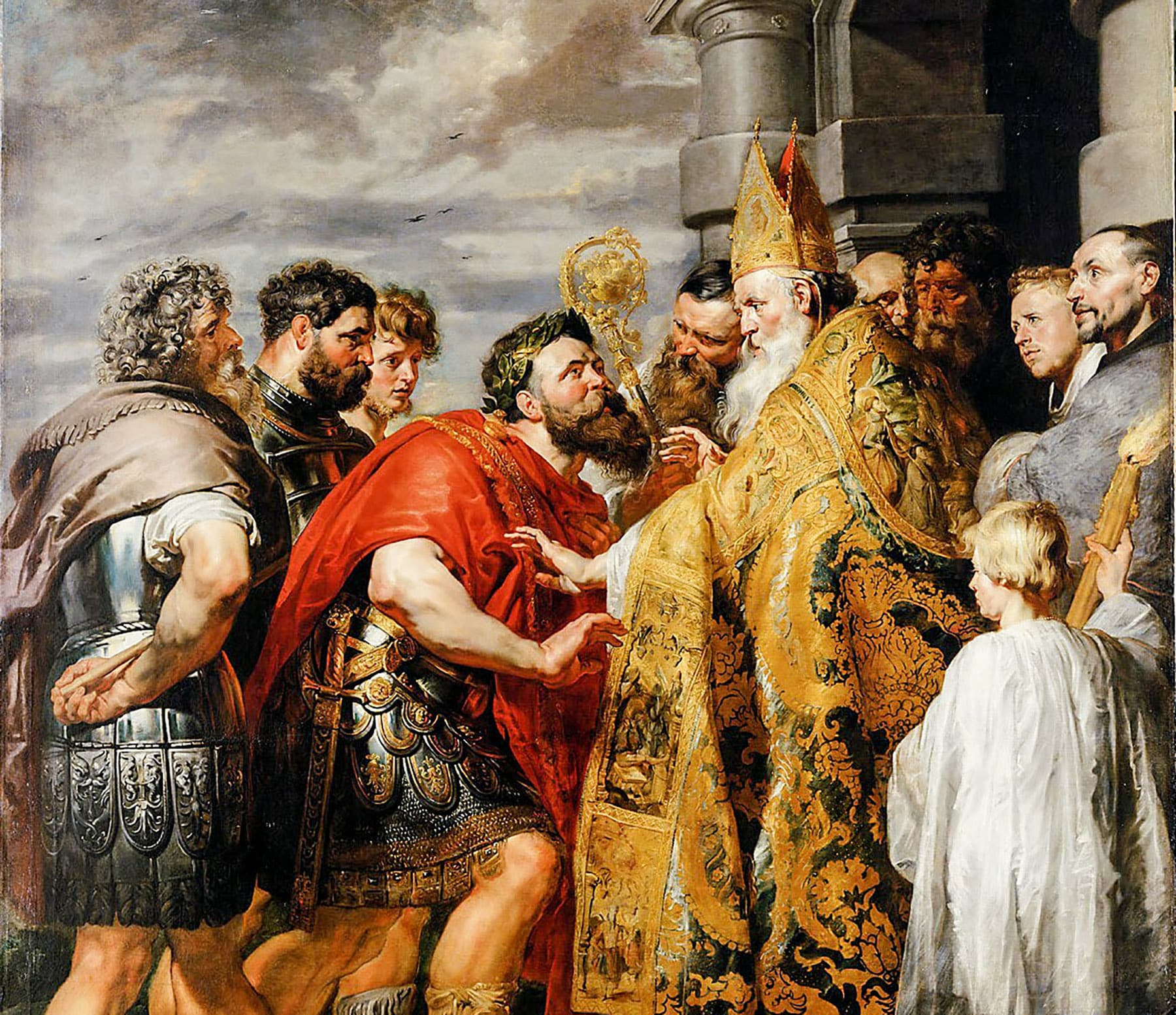
For Maronites the Liturgy is not an expression of community spirit but a privilege of God’s mercy
From the Maronite perspective, God calls all people to Himself, but the Divine Sacrifice offered by the Church, the Eucharistic Liturgy, “the Mass,” is not intended for all people, only for those who are heeding the summons. This is why, immediately before the distribution of the birshan or consecrated host, the priest holds aloft the chalice and paten, saying: qud.she l.qa.dee.she bash.loom.to wab.dak.yu.to wab.qa.dee.shee.to met.yah.been, “The holy is given to the holy in fullness, purity, and sanctification.”
To our ears, this seems unbelievable, not because we do not believe the Body and Blood of the Lord to be holy, and to represent the fullness of all which is pure and sanctifying, but rather because we are unaccustomed to think of those participating in the Rite of Communion as holy.
Are we not all sinners? And if we are sinners, who are we to refuse anyone the consecrated Host?
Yet, Christians are often called “saints” (For example 2 Corinthians 1:1). This issue is addressed in the Epistle to the Hebrews, where we are taught that through the Blood of the Lord, “we have confidence of entrance into the sanctuary … and since we have ‘a great priest over the house of God’ let us approach with a sincere heart and in absolute trust, with our hearts sprinkled clean from an evil conscience and our bodies washed in pure water. Let us hold unwaveringly to our confession that gives us hope … We must consider how to rouse one another to love and good works. We should not stay away from our assembly, as is the custom of some, but encouraging one another …” (from Hebrews 10:19-25).
So in the first century, some Christians were not attending the liturgy because they felt that they were too unworthy.
Now, in the twenty-first century, others believe that the liturgy should be so “inclusive” that everyone can attend and receive Holy Communion. Let us take the modern example of politicians who promote unrestricted abortion. They are already excluded by their own actions, and in receiving the Eucharist bringing judgment on themselves (1 Corinthians 11:27-29).
This is the immemorial teaching of the entire Catholic Church. When the Emperor Theodosius I was, it seems, concerned in the massacre at Thessalonica (about 390), Bishop Ambrose of Milan (later St Ambrose) forbade the Emperor to receive the Eucharist until he had done penance. He took a firm line, and the Emperor yielded. The painting by Rubens well illustrates that the venerable bishop has acted out of the highest Christian motives, and not from irritated sanctimony.
The Maronite tradition does realise that a balance must be struck between the fact that we are, in absolute terms, not worthy of so great a gift, and yet it is offered to those who are called both in Scripture and the Divine Liturgy, “saints”? How can this be?
We are not worthy, but God in His mercy allows us to serve Him at the altar, and to join in the worship of the Church. The Church, the mystical body of Christ, in herself is holy, even if we who are its individual members are not. The sacrifice offered in the Liturgy is Our Lord Himself, and He is indeed a worthy offering.
This also helps us better understand the central importance of the doctrine of transubstantiation. Something ineffably holy and supernatural transpires in our churches and upon our altars. For this reason, we would prepare ourselves by fasting, repentance, and acts of charity for the service of the Divine Liturgy.
Also, this explains the good habit of going to confession before receiving the Eucharist, if one has a serious sin on one’s conscience. In addition, the Divine Liturgy itself includes two penitential rites (one of them before the distribution of the Eucharist), and an absolution by the priest before the reception. But if a person does not feel ready, they can make a spiritual act of communion.
In the Maronite tradition, fasting was related to the reception of the Eucharist: it was not thought right that one should receive the Eucharist without having made a special effort: hence, in the Middle Ages, the liturgy would be held in the evening so that people could fast during the day, and then eat before sleeping. The Maronite Church knew five major fasts: Great Lent, The Week of Suffering, before the Nativity, the Assumption, and the Feast of Ss Peter and Paul. Sustained fasting was part of an especially intense review and amending of life before these great feasts.
The conclusion of this part is simply that, in the Maronite tradition, participation in the Divine Liturgy, and most especially the reception of the Eucharist, was not seen as a right, or expression of community spirit, but a great privilege, a Mystery made available by the mercy of God, for those who shared the faith, and were struggling with their appetites, weaknesses, and sins. In the second part, we shall see how an Evangelical scholar came to a similar conclusion, that all are called to salvation, but that worship in the congregation, is only for those who are “saints.”
Related:
